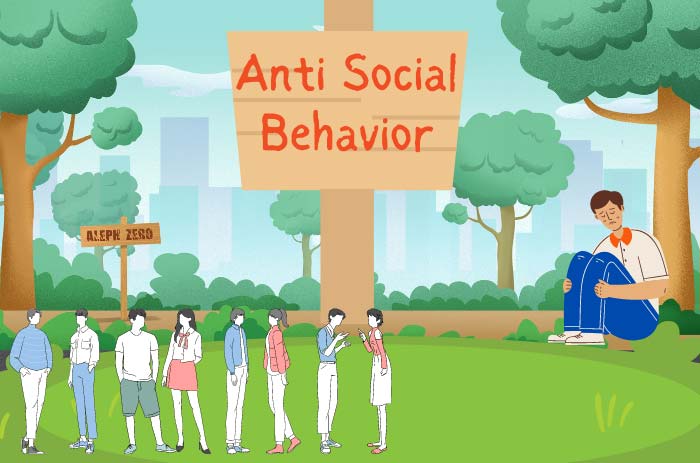Fostering a child that is not yours but needs a safe and healthy home environment is challenging. Fostering can be difficult. However, there are various benefits of being a foster parent. In this article, you will get an understanding of foster care and foster parenting. Then I will discuss various benefits that are associated with being a foster parent.

According to the 2019 report of Adoption and Foster Care Analysis and Reporting System (AFCARS), approximately 424,000 children are in foster care, with almost 251,400 children entering and 249,000 children leaving foster care.
Moreover, nearly 672,600 children were served by the foster care system. These children are from neglected and abusive households, are homeless, or are abandoned by their birth parents. In this situation, if you have enough resources to help a child living everyday life, you will be doing a favor to future generations.
What is foster care?
When a child’s birth, parents cannot fulfill their child’s basic needs and are incapable of taking care of them for various reasons; they are placed in state custody. With the help of social services, the state then puts such children in foster care settings. Foster care is temporary arrangements where a child is placed with other stable families. At the same time, their biological parents seek needed help.
What is a foster parent?
Parents who take a child into their care and give them home are called foster parents. Foster parents usually get proper training before fostering a child to be fully prepared to help them live everyday life.
Foster parents also need to fulfill some requirements before fostering a child. Foster parents usually get funds from the state to raise a child so that foster parents can fully concentrate on fulfilling their needs and nurturing them. They raise the child and also stay in contact with the biological family so that foster children can be reunited with their families after the court’s approval.
Why should you choose to foster a child?
No child comes to this world with his own will. So it is the responsibility of every parent to give a child the best nurturing possible. However, in some situations, parents are not capable of look after their children. They can be a drug addict and broke. They may have mental health issues or medical conditions or be involved in physical abuse, emotional abuse, neglect, or even abandonment.
Moreover, sometimes the pregnancies are unplanned, and the child is deemed as a mistake. In such circumstances, the state took responsibility for that child. However, the government can ensure meeting the child’s basic needs, but every child demands a regular and stable home experience. Every child cannot be adopted, thus temporarily placed in a setting where he will receive proper nurturing and care until his parents get their parenting rights back or he is free for adoption.
Benefits of being a foster parent
Fostering can be difficult and challenging but so does parenting your own child. Here are a few benefits of being a foster parent if you are planning to foster a child.

1. You will feel expedient, accomplished, and on a mission
Helping someone in need and serving someone less fortunate than yourself in itself is a rewarding experience. Helping a traumatized child after being separated from their family because of various harrowing reasons can make you feel good about yourself. You will feel energized, valued, and useful (Rodger, Cummings, & Leschied, 2006).
2. You will change the coming generations for good
A child who has never been in a happy and healthy home environment and has no concept of the normal family will give him a new outlook towards this world. Including him in your family will give him a chance to be a part of a traditional family setting, which will broaden his mind and change his family’s perspective.
By changing one mind, you will be bringing a positive change to the coming generations. When a child from an unconventional family system doesn’t receive proper care, he will most likely become a parent like his own parents. Thus, the cycle will continue. You can break this vicious cycle by taking a child into your care and raising him.
3. You will be contributing to society
Those children living in state-developed homes and establishments are likely to be homeless, involved in criminal and self-harming activities, and become drug addicts. By taking a child into your care, shaping their personality, giving them values, morals, and ethics, you will contribute to this society’s well-being. Being a fortunate member of this society who has shelter on his head, has running water, electricity, food in your fridge, and a job that pays, you can at least do this. You can give a productive member of this society that can have a positive contribution to this country.
4. You will be giving your family a different outlook on this world
When you include a person from different backgrounds, cultures, or ethnicities, you will be giving your family a new exposure. Considering the problematic situation a foster kid had to go through, your family will realize how privileged they are to have even primary care and luxuries. Having an abusive or addictive parent and belonging to a dysfunctional family can mess you up. So, your family will be able to understand better and thankful for what they have.
5. You will grow as a person
Living with a person from a different setup, you will come across many of the traits you were unaware of before. You will become more understanding and forgiving. You will become mature and learn to handle different situations and scenarios. You will also learn to accept and compromise with the circumstances when things are not in your control. You will begin to love your family even more and will appreciate your parents.
6. Kids are always fun, and you will never be bored
Besides all above mentioned transcendent benefits, kids are fun to have around. Most of the families opt to have foster kids when their children grow up and move out. This way, they don’t have to feel alone and experience an empty nest. After gaining parenting experience by raising your kids, you can use your expertise to help other children and thus be a beneficial citizen of this society.
7. Financial benefits of being a foster parent
For most of the foster parents, fostering is never about money. However, raising a child is expensive, and you will definitely need financial assistance. Foster parents get reimbursement subsidies to cover the basic needs of the child. The subsidy amount varies from state to state and depends on the particular needs of your foster child. Some states also allow clothing stipends, transportation allowance, and Medicaid insurance for medical, dental, and behavioral issues. In some cases, foster parents can also claim their foster kids as dependent on their taxes. For details, you can consult your tax advisor.
The state and government try to cover the basic needs of the child. But if you consult foster parents, it is evident that the subsidy is not enough to fulfill all child needs. In fact, they have to pitch in their own cash to meet the needs of the child. Thus, if you want to foster care for money, then this is not for you unless you illegally neglect the child. Financial support is a benefit of being a foster parent, but it will share your burden, don’t make you rich.
8. You will get a chance to guide the parents in need
As a foster parent, you have to stay in touch with your foster child’s biological parents. These parents are usually going through tough times and find parenting a difficult task. You can set an example for those parents and help them find their potential of being a parent for their biological child. If you are a patient person, you can change two lives of your foster child and his biological parent.
9. You will get closer to God
Fostering is not a religious task; however, if you are a religious or spiritual person, there are certain spiritual benefits of being a foster parent. There is comfort in helping those less fortunate and week than you. God tells us to help and support other human beings who cannot help themselves. By serving a child in need, you will get closer to God, and your bond with Him will be strengthened.
10. You can also adopt your foster kid (under certain circumstances)
Suppose the rights of the biological parents of your foster kid withdraw by the state. In that case, you will be first to consider as adoptive parents. If you want to adopt, this will be your best chance as you know all about the kid, and there will be no surprises for you and the child.
The bottom line is that if you have ever thought of becoming a foster parent, you should go for that. There is no right time to take a step except now. So bring a difference to this society and be a change.




